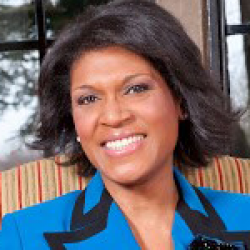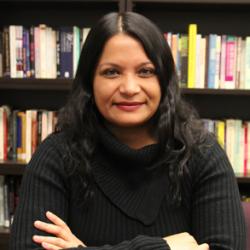Women's travel and participation in regional transport systems
Session
Travel patterns of women differ from those of men in developed and developing countries alike, and in both rural and urban areas. These differences are evident in modal choice, time of travel, trip purpose, routes, trip chains, and travel distance. These distinctions stem from systemic differences in access to resources, household responsibilities, travel preferences, safety concerns, and social norms surrounding mobility for women. As a result, women experience unique time and resource constraints with respect to their travel activities. They also face safety and security issues that are more acute and pervasive than for men. Socio-economic gender disparities tend to be self-reinforcing, as mobility itself provides access to sources of income, education, healthcare, and other opportunities. A better understanding of women’s travel patterns can inform transport planning and policies which enhance connectivity for women and help them reap the social and economic benefits associated with it. This session will examine gender-specific aspects of mobility.
Key facts:
- Although men make longer trips, women make more frequent, shorter and more complex trips , with many cities reporting over 50% of public transport trips being made by women;
- Women prefer trains, buses, taxis and walking or cycling, over private vehicles (Ng, W. and A. Acker. (2018) Understanding Urban Travel Behaviour by Gender for Efficient and Equitable Transport Policies, International Transport Forum Discussion Paper No. 2018-01) https://www.itf-oecd.org/sites/default/files/docs/urban-travel-behaviour-gender.pdf
- In Europe, the transport workforce is 22% female despite women accounting for 46% of the total workforce (https://www.governmenteuropa.eu/women-in-transport-eu-platform-change/85971/)
Lead questions:
- What economic and social benefits will improved mobility for women bring?
- What actions should be prioritised to improve the mobility needs of women in developed countries?
- What actions should be prioritised to enhance mobility for women in less developed economies?
Background reading:
- Women’s Safety and Security: A Public Transport Priority https://www.itf-oecd.org/sites/default/files/docs/womens-safety-security_0.pdf
- Understanding Urban Travel Behaviour by Gender for Efficient and Equitable Transport Policies https://www.itf-oecd.org/sites/default/files/docs/urban-travel-behaviour-gender.pdf
- Gender and Transport https://www.itf-oecd.org/sites/default/files/docs/dp201111.pdf
- Women’s Issues in Transportation: Bridging the Gap https://wiit-paris2014.sciencesconf.org/conference/wiit-paris2014/pages/Proceedings_The_5th_International_Conference_on_WIiT.pdf
- Research on Women's Issues in Transportation, Volume 1: Conference Overview and Plenary Papers https://www.nap.edu/catalog/23274/research-on-womens-issues-in-transportation-volume-1-conference-overview-and-plenary-papers
- Gender Equality and Mobility: Mind the Gap! Civitas Policy Note https://civitas.eu/sites/default/files/civ_pol-an2_m_web.pdf
Juliette Foster

Juliette Foster is an award-winning broadcaster and businesswoman. She has worked for the BBC (British Broadcasting Corporation) and has anchored flagship programmes at Bloomberg Television, Sky News and BBC World Service Television.
Diego Diaz

Since 2013 Diego DIAZ has held the positions of President of SNCF International and International Director of SNCF MOBILITES.
Diego DIAZ began his career as a Product and Project Manager for Thales Avionics before joining Bombardier Transportation where he held several leadership positions in the Services and Light Rail Divisions before being appointed Director of Strategy, Marketing & Sales.
Mr. Diaz holds a Master of Science in Aeronautics & Astronautics from M.I.T (Massachusetts Institute of Technology), a Master of Business Administration from the M.I.T Sloan School of Management and a French engineering degree from the “Institut Supérieur de l’Aéronautique et de l’Espace” (ISAE-SUPAERO).
Karla Gonzalez Carvajal

Ms. Carvajal is a specialist in the subject of negotiation and alternative dispute resolution. She obtained her MBA with an emphasis on Marketing at the University of San Diego in California and holds a degree in Law from the University of Costa Rica. Her work over the last decade has provided her with extensive experience in the area of public service. She has specialized in Alternative Conflict Resolution Methods and is currently a member of the Centro Internacional de Arbitraje y Conciliación Comercial (International Center for Arbitration and Commercial Conciliation). She was a member of Road Safety Committee, which is led by the Fundación Internacional de Automovilismo (International Automobile Foundation). As Minister of Public Works and Transportation in Costa Rica she achieved a fourfold increase in the investment of public works, the resumption of construction at the national airport, which was stalled due to conflicts, the transformation of the driver’s license system, the promotion of a new traffic law and the inclusion of road safety components in the design of road infrastructure. She is currently Transport Sector Manager for South Asia at the World Bank. Karla is also leading the Gender Task Force for the World Bank's Transport Global Practice, working to operationalize the gender agenda in the transport sector.
Bipasha Baruah

Dr. Bipasha Baruah conducts interdisciplinary research on gender, development and globalization; women and work; and social, political and economic inequality. Dr. Baruah’s current research focuses on climate change and social justice. It aims broadly to understand how to ensure that a global low-carbon economy will be more gender equitable and socially just than its fossil-fuel based predecessor. Dr. Baruah frequently serves as an expert reviewer and consultant on gender equality issues to international development and environmental protection organizations.
Mattias Landgren

Mattias Landgren is State Secretary to Tomas Eneroth, Minister for Infrastructure. He holds a Master’s Degree in Law from Uppsala University. Prior to serving as State Secretary, Mr. Landgren held various positions at the public sector, including: Political Adviser at the Prime Minister's Office, Chief Legal Officer at the Building Workers' Union and Collective Agreements Expert and Head of Section at Unionen (trade union). He has also worked as a law lecturer at Stockholm University.
Heather Thompson
Heather Thompson brings decades of experience in the environmental non-profit sector to ITDP. Most recently, she has been advising clients, including the Asian Development Bank, The David and Lucile Packard Foundation, and the Environmental Defense Fund, in designing strategies that will have a large-scale impact. Ms. Thompson has been involved with ITDP for many years, initially as co-founder and Vice President of programs for ClimateWorks. Ms. Thompson has sat on the ITDP board of directors for the last eight years, serving as board chair for the last two years. She holds a MSc in environmental economics from the University of York, U.K. and a B.S. in biological sciences from the University of California, San Diego.
Rana Kortam
Rana Kortam is the Global Head of Women’s Safety Public Policy for Uber. She leads the company’s efforts around the issue, working with governments, researchers, NGO’s, as well as local policy teams in over 60 countries Uber operates in. Her passion is ensuring women find a safe ride and a flexible way to earn income in Uber.
A born and raised Egyptian, she previously led public policy for Uber in Egypt, shaping the future of regulation for the budding tech ecosystem.
A techie at heart, Rana graduated Summa Cum Laude from the American University in Cairo with a Bachelor’s degree in Electronics Engineering. Prior to joining Uber, she led developer relations for Google in the Middle East and Africa, before managing public policy for British American Tobacco in North Africa. Straddling the worlds of tech and policy, and a serious zeal for everything women empowerment, she is an expert in several public policy issues, including women’s mobility and safety, gender based violence especially in transport and public spaces, gender equality and economic enablement.